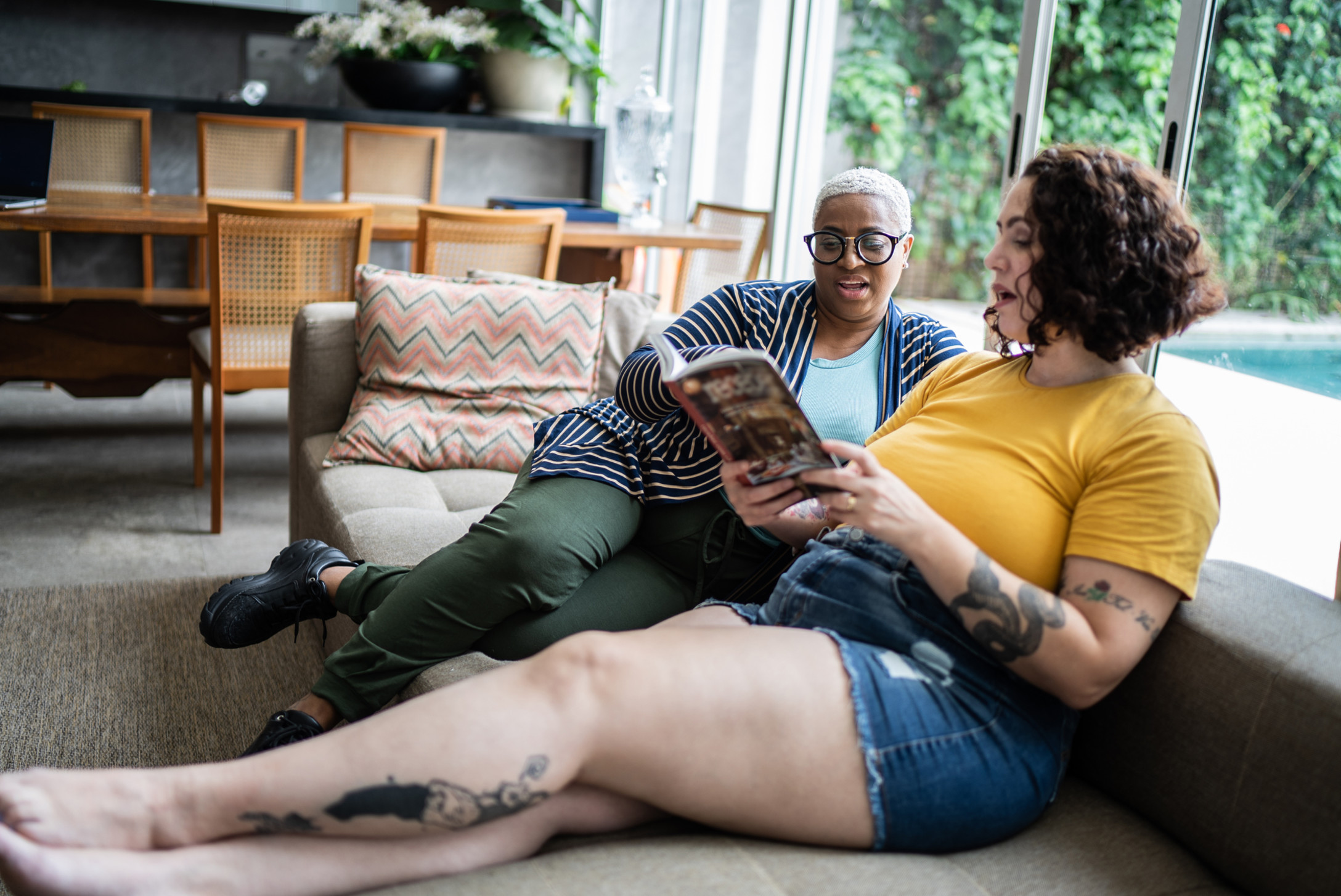
Relationship anxiety is real, and it affects most of us at some point or another throughout our lives. Is my relationship going anywhere? Was that fight healthy or toxic? Does my partner care about me the same way I care about my partner? No two relationships are the same, so there’s no use in comparing yours to anyone else’s. In my years as a sex and relationship therapist, I’ve learned to counsel my clients to look for five general signs that they have something real.
These signs will let you know if your partnership is based on healthy love. Keeping an eye on them gives you an idea of whether your relationship needs to be fixed, maintained, or simply let go. It pays to be proactive.
Equitable Partnership
Any relationship is built on the premise that you give as much as you take, but it’s not quite that easy in practice. We’ve all experienced some kind of hiccup that makes us less available to our partners. It could be work burnout, a death in the family, adapting to a new child, or anything that throws you off your rhythm.
An equitable partnership is one in which you and your partner give each other whatever you can give. This means you tell each other what you’re going through and set clear expectations. It means that if you both work, you trade chores and cooking as equally as possible. If one of you works more, the other can pick up a little extra weight with child care or housework.
It also means that when you’re going through a traumatic or draining experience (and you’ve told them about this), your partner doesn’t demand things you can’t give. When they see you’re overwhelmed, they pick up the slack — just like you do for them.
No one is a mind reader, so equity only works for couples with strong communication.
Communication

Yes, you’ve heard it a million times: Couples who communicate have better relationships. What exactly does this mean, though?
It doesn’t mean talking to your partner for an hour every day or asking them how they’re feeling all the time, though there’s nothing wrong with that. Communication means talking when it matters, which is, ironically, when we have the most trouble with it. Most people have no issue discussing their lives, pet peeves, drama, or hobbies. We get hung up on the emotional, awkward, and potentially hurtful things.
“I don’t like how that feels — can you do it a different way?” is a simple sentence, but it’s incredibly difficult to say to your partner if you’re not enjoying sex. Are they going to feel insecure? Is it going to derail sex? Would it be easier to say nothing at all?
Yes, it is easier to say nothing at all — but love isn’t always easy. Here are some other examples of good communication for tough topics:
“I need your help around the house, I feel overwhelmed trying to do it all.”
“I want to be around you, but I also need some time to myself.”
“We need to find time to spend together. I feel it’s been forever since it was just the two of us.”
I know these are textbook cases, but think about the unique things you and your partner have needed from each other in the past. If one of you has tried to ask about those things with a positive result, then it’s likely your communication is healthy.
This isn’t the same as fighting, yelling, or berating one another. If your partner can’t express feelings without screaming or making you feel small, then it’s not healthy communication. You can encourage them to seek therapy, but you cannot fix that problem for them. Like every aspect of a relationship, communication is built on trust.
Trust
Trust is a tricky subject, especially for those of us who have been hurt before. We can say that we trust our partner, but is that how we feel? Do we act like we trust them?
You might assert that your partner would never cheat on you, but if you can’t resist scrolling through their unlocked phone, then there’s still some work to do. You might say you can trust them with anything, but if you’re afraid to tell them your feelings then you aren’t communicating with trust.
This goes both ways, but I don’t recommend accusing your partner of not trusting you. Trust is a conscious effort, and sometimes it’s very uncomfortable. If you feel like your partner isn’t treating you with trust, you should bring it up respectfully. If you feel like you don’t trust them, well, maybe you just need time (or a little therapy).
Trust is a sign of a truly loving relationship, but if you don’t have it yet, that doesn’t mean your love is failing. Instead, you should work on building and practicing trust. On the other hand, if your partner has broken your trust and continues to do so, that’s problematic.
Sex

Sex and trust go hand-in-hand. You’re trusting someone with your body, your pleasure, and your physical insecurities. That’s just one of the reasons that sex is so important in a relationship.
You don’t have to get laid every day — what parent has time for that? You should, however, make an effort to keep your intimacy alive.
There’s no right or wrong amount of sex to have; it depends on you and your partner. As a general rule, I tell my clients to aim for once a week. Frequent sex — up to once per week — is proven to increase relationship satisfaction, so it’s a healthy goal to set.
Signs of a healthy sex life aren’t about frequency. Instead, they’re about desire. Do you want to be having more or less sex than you are? Does your partner? Do you enjoy sex with your partner?
If you and your partner are happy with your sex life, then it’s a clear sign of a healthy relationship.
Commitment
Commitment is fairly straightforward. Do you and your partner both want to be together and stay together? This is as much about how you feel as it is about what you say. If you’re committed, you should feel like your partner is your future as much as they are your present.
It also encompasses the terms of your relationship. If you’re monogamous, then both of you should feel comfortable and happy with the idea of seeing only each other. Likewise, if you’re polyamorous, you should feel comfortable with the rules you’ve set about seeing other people.
You should also share the same relationship goals. Do you want to get married someday, or would you rather just be together without the paperwork? Do you want to own property together? Do you want more children?
If both of you have similar feelings about the future, then your relationship is healthily committed.
Take Your Time

Will a healthy relationship always have these five indicators? No. Things change, life throws curveballs, and we have to adapt as best we can with our partners — which takes time.
I don’t advise my clients to ditch relationships without all five signs or to stay in relationships without them. Instead, I tell them to look at their relationship’s potential. If you’ve been lacking these signs for a while, despite your best efforts, then maybe your relationship isn’t healthy and it’s time to move on.
If you can see these signs improving soon, then maybe your relationship is in the process of getting healthier. As always, the only true expert on your love life is you.



